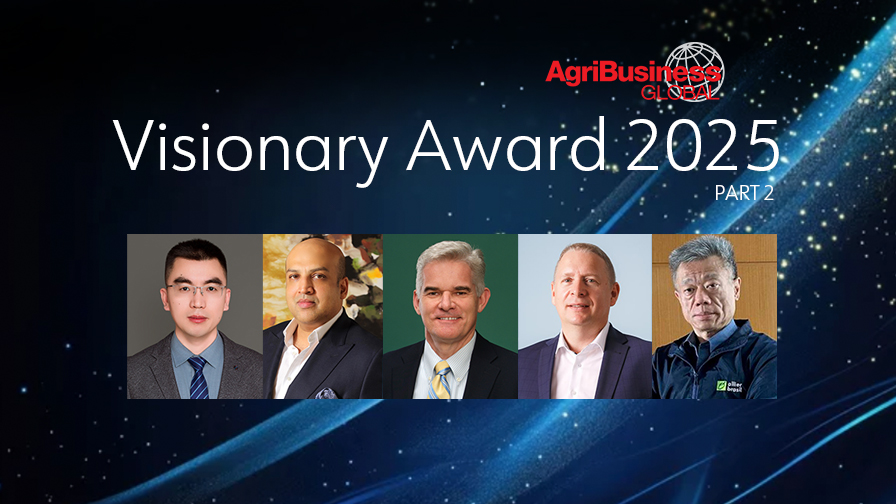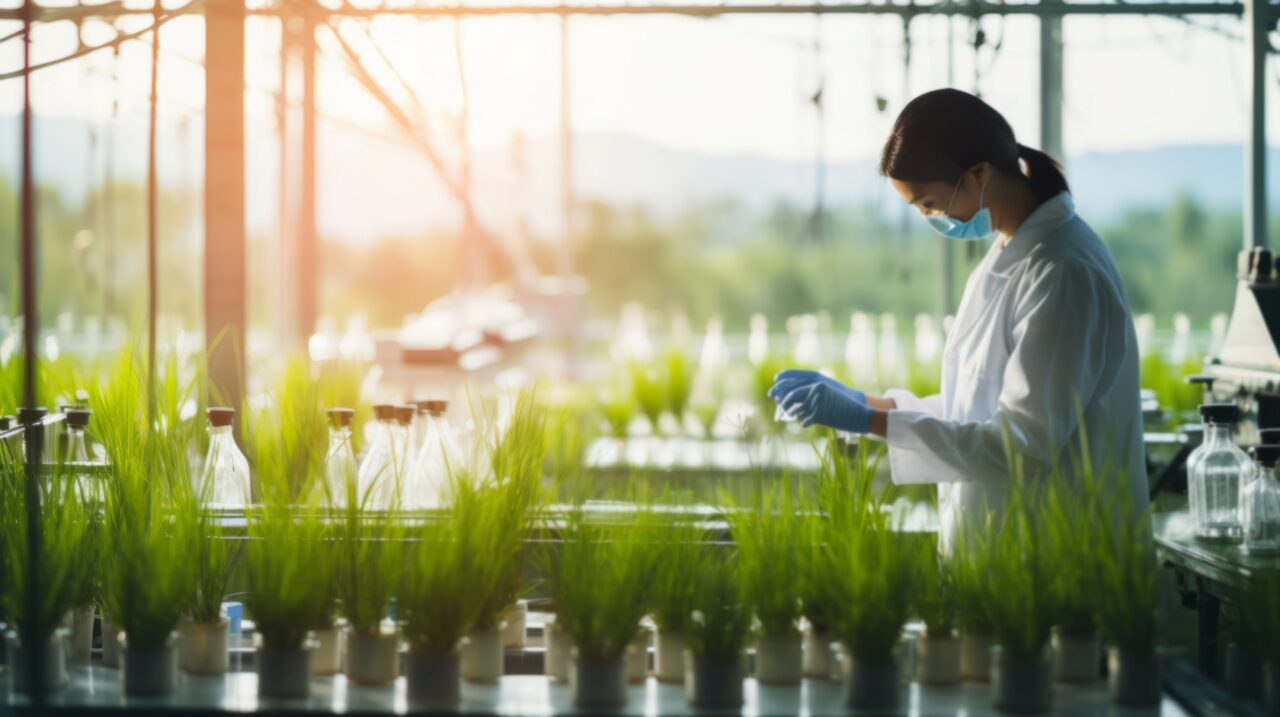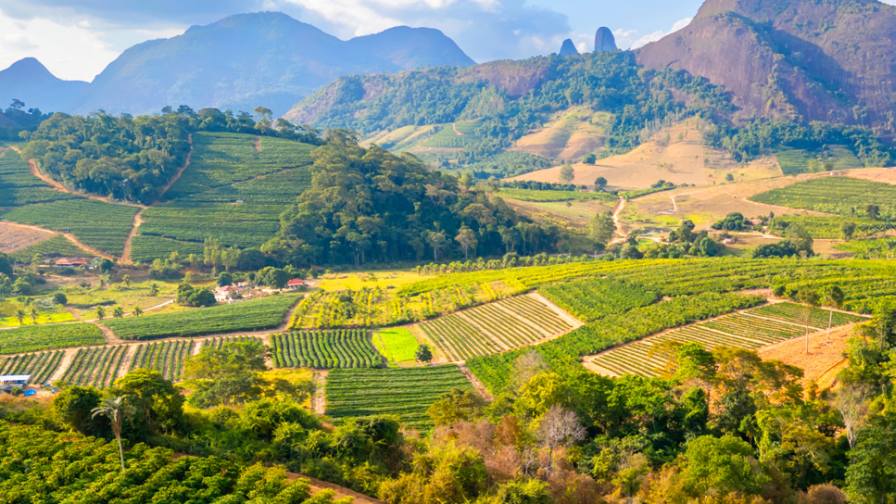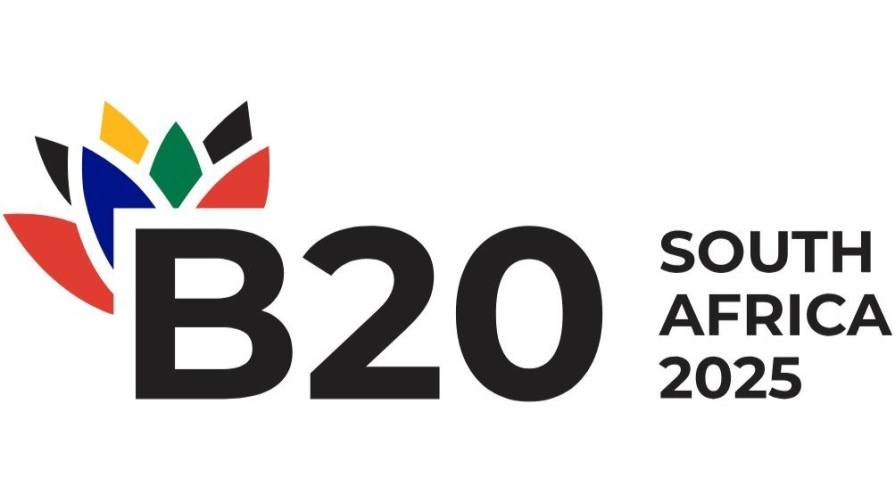Ag Tech Talk Podcast: Exploring the Virtual World – the Metaverse, Digital Twins and How They Will Change Agriculture

Robin Raskin, Founder of The Virtual Events Group, has been on the cutting edge of technology for quite some time. As the editor of PC Magazine when Bill Gates was introducing the DOS operating system, she’s had a front-row seat to the changes brought on by technology. Recently that included the metaverse and digital twins. Ag Tech Talk spoke with Raskin, a presenter at Meister Media Worldwide’s Vision Conference earlier this year.
Podcast Transcript:
AgriBusiness Global: Thank you for being with us today. We are talking with Robin Raskin, who is the founder of the Virtual Events Group. Why don’t you tell us a little bit about what that is, and how that maybe differs from Zoom, Teams, or any other apps that have come along in the last year or two.
Robin Raskin: I was the owner of a live events group. I had the good fortune, or somebody was sitting on my shoulder looking out for me – I sold it right before the pandemic. Everybody starts asking me, what do we do? How long is this? How do we exhibit? How do we get our messages out? I just said, “You know what, I’m going to start this new business.”
It’s called the Virtual Events Group, even now that we’re back at live events, it is about being digital first, tech forward. So it is about the tools that you use. Nobody wants contact check-ins anymore. They all want to be contactless. Everybody wants to be able to record, publish, and get it out there. So, all those skills that we learned about how to meet virtually, Zoom included. But there are many others that have everything from ticketing to post event analysis to AI, now to draft your agenda, to look at carbon footprints. So, they’re pretty robust tools and for many people it’s become sort of de rigueur to have virtual components – a hybrid component to your live event, whether it happens simultaneously, or it happens afterwards, or you have short meetings during the year with one big get together in person. People are experimenting, and we look at The Virtual Events Group – the website is a database of like 700 products that you can use sorted by category. Then we have monthly meetings to discuss these things. This one coming up is on AI and virtual events. And it is funny, just this morning I asked ChatGPT to write me a request for proposal for a virtual event, and I specified the number of people, and brava, it was pretty good. It needed my help, but pretty good. So virtual Events Group is really just to help people meet, as I like to say, the Marriot, the metaverse, or Mars. We don’t care where it just should be tech forward because it’s enormously helpful.
ABG: Now that people are going back into the office, back to live events, you don’t expect these types of virtual meetings to go away?
RR: No. On the contrary, I think travel budgets have been slashed. People are super aware of carbon footprints, particularly in flying. And so, my fear is actually that they’ll have people staffing booths, and they’ll have CEOs there, but this middle group needs training, and they need to see products, and there’s a large swath of people, corporations are now doing monthly meetings that are fancier than television production. So, I think the contrary is going to happen. The medical industry, the banking industry – I mean events that are virtual – concerts. I think we’re just going to become – it ties into the metaverse, the physical and the digital.
This younger generation will blend it very seamlessly and make a decision. People will not go to as many events as they did before the pandemic, I think, until the economy recovers, and until we solve the carbon problem.
ABG: Probably shouldn’t share that with my boss, since I know they’re planning a couple of in-person events coming up here, but we have done some virtual meetings, so it’s good to have these platforms.
Your history, though obviously, is in tech. Looking at your LinkedIn profile and I think you mentioned it when you spoke at the Vision Conference for us a few months ago you were the editor of PC Magazine back, when Bill Gates introduced DOS. Everybody knows who he is now, but back then he wasn’t quite as well known. Can you talk about that experience.
RR: There was young Bill Gates, and there was IBM, and then there was Apple. And then, slightly thereafter, if you remember, there was OS2, and IBM thought they had a grander vision, and Bill built windows instead. So, this whole thing, DOS had like 700 versions. And so, I kind of grew up in this industry, watching it be built. And when I was the editor of PC Magazine. You probably had a choice of 150 computers that you could buy – desktop computers, and then that kept dwindling to now four or five, and that is like a business cycle.
I have to say there was never a day at PC Magazine that was boring, and I still feel the same way about tech. I am as excited about tech today as then. Although I think, as I age, I’ve learned to think about the implications of it more. I remember having an early conversation with Bill Gates because I had written a column that women would be free to work where they want you to work. And he said, “You really think there’s going to be a computer on every desk in America.” And I said, “I really do.”
And now I think there’s going to be an AI on every desk in America, and that begs more questions than the PC. When I started writing, they were not connected, and there were no mobile phones, so the world (is going through a transformation) like from horses to the Wright Brothers. It’s that sort of magnitude of change.
ABG: One of the things that you talked about, the thing that you presented at the Vision Conference was the metaverse and digital twins. Can you explain what those are for somebody who may not be familiar?
RR: There are a lot of terms bandied about and without a lot of clarity. But the important thing is to think about the metaverse as a sliding scale. There are metaverse-like things that your kids are probably in, and don’t even know it’s a metaverse – Roblox or Fortnite. Those are the two big examples.
So, think about a metaverse as its primary characteristic. Is it an immersive 3-D experience that you go to. Behind that there’s a web, 3-D world with currencies and blockchains and ways of doing commerce. Another misconception. You don’t need extra hardware to be in the metaverse. You can have a more metaverse-like experience if you put on VR goggles, and you are totally immersed.
But the majority of people just go on their computers, which are, for now, mostly 2-D and have an experience. A metaverse can defy the laws of our real world. No gravity the ocean could be the sky. This sky could be the ocean. I can be a pink unicorn. You can be a gray elephant, whatever we want to do.
A digital twin – is an exact replica of the physical world, and where that gets useful for people in agriculture, people in city planning people in museums, factories, is to build an exact process that they want to duplicate and see how it works before they lift a single nail or plant a single crop.
ABG: Is anybody actually doing that in agriculture right now?
RR: There are two things happening that I know of. One the tractor companies like John Deere and Caterpillar are not so much using a metaverse but they are working with internet of things (Iot), cameras, GIS photos, satellite imagery, so that you can actually ride your tractor down and get a full 360-degree view of your farm with IoT devices, which are the internet of things, which are sensors. You can test for the acidity of the soil; you can test for rainwater. You can water just where you need it, and nowhere else. You can make sure you’re putting any pesticides where needed, and nowhere else. So, you can be a lot more efficient and cost effective and sustainable using systems like that.
The other place I’m seeing it used is in digital twins of city. And I’m going to point to Seoul and Singapore as two really good examples. Singapore grows no food, basically. They have this problem now that everything’s imported. Well, now, they have basically redesigned the city in a digital twin, so that anything that can hang anywhere between buildings, in pits on the streets will be an urban garden, and will grow food. And their plan is to actually, I believe, to grow 30% of their own food as they phase into this metaverse. The first phase is up there, now. You can actually walk through Singapore and be a tourist, and you could do certain government things there, now … attend meetings, so they are pushing the limit on what you could do.
It’s a good example of a digital twin that’s being used. A lot of others are games. Just one in India. It’s called AsyAgro. And there’s tokens that you get for doing the right thing in agriculture, and your product goes on the blockchain.
So, you can actually verify that this grain was grown here, and only these people touched it. And this is the cargo ship it came over on, and sort of track the life cycle of your product. You’re going to see a lot of manifestations of a metaverse-ish world.
ABG: We’re seeing more savvy consumers. They want to know where their food is coming from. They listen to all the problems we’ve had with the supply chain over the last couple of years. Is this going to help a grower, or a country manage their farms so they can say, “Look, we’re sustainable, we didn’t use these products?”
RR: I think you’re seeing it so much. First of all, augmented reality, if you have a mobile phone and a QR code, you know everything that’s in your food – I see them in grocery stores.
I’m also starting to see customer loyalty. If you think about a farm the way you think about a retail store, there’s customer loyalty. And the more people understand where your product came from, who grows it, and you see it on large agriculture sites, now. Take your people – show me how you grow this. I want to know more. I want to be more informed about the choices I make of things to put in my body, and I really want to try and do the right thing.
You know everything from: Is this compostable to did you use the pesticides? So, I think people have become much more aware, and I think farmers have an opportunity to translate that awareness into storytelling.
I actually met a farmer storyteller the other day. He’s from Canada, and they’re building a communal farm, and he believes the power that will sustain them is in telling their story to people who come there. The more farms can spread that message of being in the present … You have a new generation that’s digitally superfluid. They go back and forth. They’ll look things up. I actually believe, not today, but you will go to the Decentraland and or The Sandbox, and I can own a piece of your farm and tend it. Let’s say you give me an NFT, which is a non-fungible token, which just can be a little art representation of what I own. And then I play “Tamagotchi Meets Farm,” – what if I change the pH of the soil, and people will play this a gamification. Some of the big companies are doing it super successfully in retail. If you go to Roblox, use it as an example again. Gucci’s there, Walmart’s there, Forever 21 is there, playing games. I believe del Monte, is there, but I could be wrong. Playing games that help customers learn about where this stuff is coming from.
ABG: Sure, what will it take for Joe Farmer? Not the big giant corporations that maybe have a lot of money or backing behind them and not the one-acre farmer. But you know the farmer that needs to embrace this technology? Is it expensive? Is it just a matter of dedication. What does it take?
RR: It takes just simple steps. A farmer’s life is busy enough up, but simple steps like an Instagram account, you know, step one.
This is our farm. This is what we do every day. You cannot believe how many people are fascinated by this and interested in this. My advice is, start small, post once a day, and if one of your kids on the farm happens to be playing a lot of games in their spare time, I would use them. The kids all tell me that you have 10-year-olds, 12-year-olds. Their favorite games are simulations. I want to build a lemonade stand.
I want to build a factory. I want to make something. They love this stuff. They’ve always loved this stuff since Monopoly. So, a simple game is not such a bad idea. Instagram and social media. I call out Instagram. You can do TikTok, but it’s a unique talent. I think about all the social media out there. You can’t do them all. It’s kind of time-consuming. You don’t want to hire somebody, but just start to show an authentic side to your life, and I think that creates a bond in every industry, and it should in farming as well.
ABG: One of the early popular games on Facebook was a game called Farmville. Was that sort of a I prefer to all this.
RR: Absolutely. Everybody played Farmville, and everybody loved it. And you know, Second Life also. There were farms there.
Gaming patterns repeat themselves. But now stupid animal tricks. Everybody’s watching cats and dogs; who’s watching the goats and cows. So, I think that mobile phone and there is a whole creator economy, and it’s actually rather large. And I think having a mobile phone and a little bit of spare time to get your message out is the place to start.
And then there’s really no need to be building a digital twin of your farm, yet. but I always look for people who are bigger than me that might want me to be like part of their world?
ABG: Sure. I’m: just wondering if what you mentioned the Internet of things. Growers have sensors all over their property. They have cameras and everything. And they have a digital twin, they don’t need to call that consultant to actually come to the farm itself, right? They can use the digital twin with the sensor that says, okay, this area is low in nutrients, needs a little extra. Is that somewhere where we’re headed?
RR: Definitely. I don’t want to paint too rosy a picture of IoT devices like sensors and cameras out in the field. They do malfunction, I mean there’s no doubt that we need more ruggedized equipment. But yes, you can get this feedback and then act on it constantly, and from rodent control, it can save a lot of time and a lot of money, but I don’t want to paint the picture. You know that John Deere is saving the world, because, in fact, they charge a lot to come out for a service call on these things, although many of the tractors, like many electric cars, are self-repairing to a degree, they’ll do a hard reset. They’ll give you a software update.
So, I think the other thing the farming industry can think about is investment in equipment can be seen longer term than it used to be because of so much of it being in the software as a smart machine. And as the technology improves your tractor will actually improve, which is kind of wrapping your head around something different. So, look at IoT devices. But while you’re monitoring your field. Put up a webcam and show the world it’s amazing how many people want to watch vegetables grow that can’t, and how many parents want to show their kids how vegetables grow that can’t.
So, it’s sort of thinking a little bit like the stuff that you do kind of being your own publicist a bit for now. Then, when the tools get easier, digital twins will become much easier to build, they’ll become like building Lego blocks.
ABG: Maybe we’re a little bit ahead of the game. But is it simply cost or complexity that might slow the adoption of this this technology? Or is it just a matter of time until it becomes more understood?
RR: Right now, cost. These headsets are large and uncomfortable and unwieldy, augmented reality it’s really used. If you have a mobile phone, once a day you are checking a QR code of something. Here where I live in New York City. You can actually walk through the city streets, and it’s all augmented reality. So, I can shine my phone at the Empire State building. It’ll give me the whole history. And so, you’re going start to see augmented reality is easier. So, you see that be adopted more quickly. Other barriers to adoption, 5G. A lot of rural farms just don’t have enough bandwidth, and believe me, the network, the carriers of the world see this is both a problem and an opportunity. Satellite imagery is going to get better and be more open source, so that farmers will be able to get an overview of their land in great detail.
They’ll be better tools for managing water scarcity. I’m really optimistic. And I’m not optimistic in every area that technology can help like education, for example. But in farming, I do believe it can help. The price will come down. The barriers always time also. You have a busy life, and you have to find the time to master a new set of skills. I remember when I ran PC Magazine. We got a Novell LAN, and this thing sat in the office box for like 6 months. And finally, I said, we’ve got to try and connect. We’ve just got to do this, and today’s connect day. Everybody’s going to put down whatever else they’re doing, and it’s hard right. It’s hard to change your process, once it’s familiar.
ABG: I’ve talked to a lot of people, and the recurring theme is growers are very traditional, right. They want proof. They want to see it in action. They want to know, even if it’s a good idea, they want to know it’s not going to cost them to make them money. It’s going to help them.
RR: And I don’t blame them. I don’t blame them. People want their business, and there’s nothing wrong with putting together a request for proposal. Here’s what I’d like, even if you’re a small farm. There are small businesses, whether it’s solar or IoT devices, who want to work with you. Be very clear about what you want from them, and for them to have to show you the return on investment because they have the analytics. That’s part. So, if your yield can be X greater if your cost of materials can be X less. Those are the kinds of things. Farmers who’ve been in business a long time know this.
ABG: Okay. I think we’ve gone through most of my questions or all my questions. The last one, metaverse versus and digital twins is what didn’t I ask you about those that people should know. Is there anything that’s still sitting out there?
RR: In this moment in time, and it’s always a moment in time, the multiverse has taken a little bit of a back seat because it’s expensive to build in the metaverse. And if you go visit the metaverse other than Roblox and Fortnite, they’re kind of empty, lonely places. I think what you see instead are 3-D tours. I want to go to the art museum. I want to go to Paris. I want to go to the Hilton and find out what my room looks like.
Then, after I see it, I’ll book it. So those are going to be the metaverse experiences. I want to see my Gucci dress, and I’ll buy in the fall when it comes out. And so, you’re going to see a lot of retail experiences in particular that are almost a try-before-you-buy, but virtually. So, what has taken over, of course, we have the attention span of fleas. What’s taken over the dialogue now is artificial intelligence, which is related, but not.
ABG: Thank you, Robin. We really appreciate this very enlightening conversation. We’ve been talking with Robin Raskin, the founder of The Virtual Events Group, speaker, advisor, consultant, all the all those different roles that you play over the years – magazine editor. So, you fit into our world even a little bit.
RR: Thank you very much for your time.








